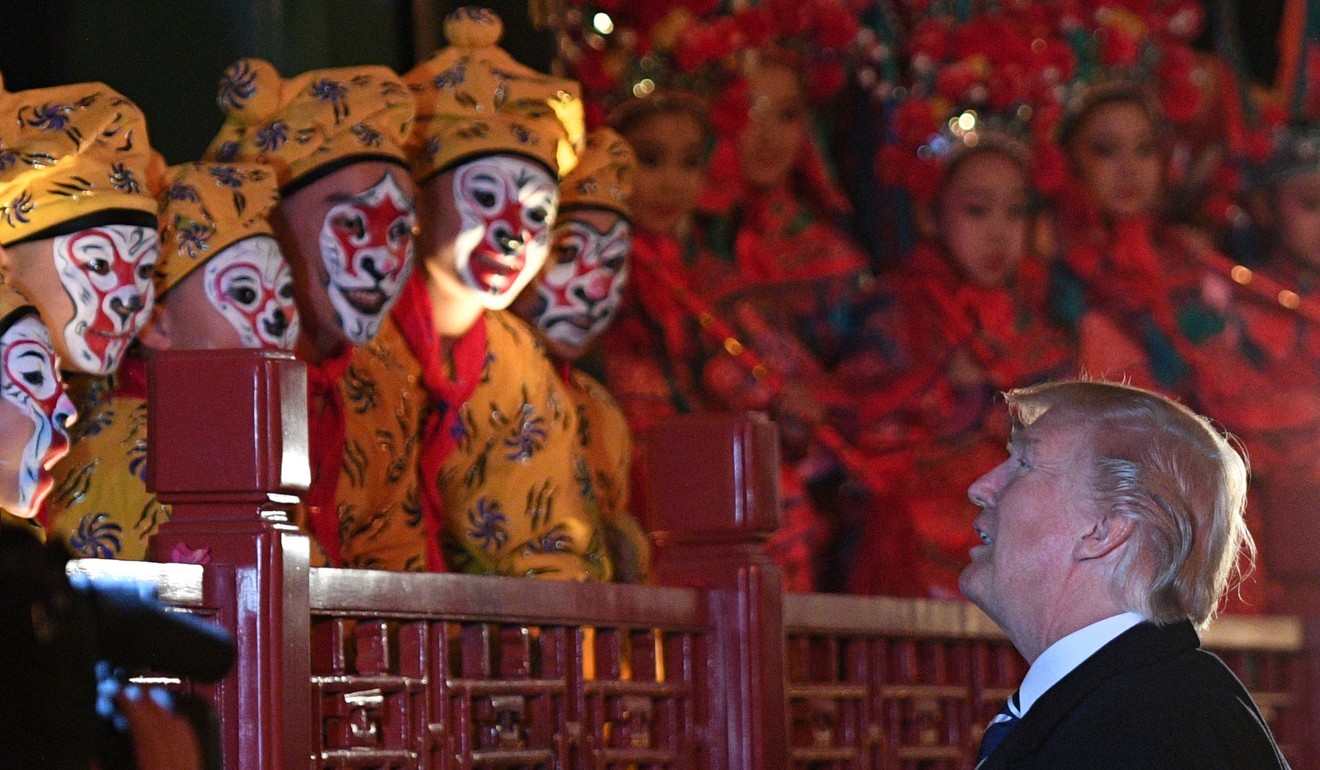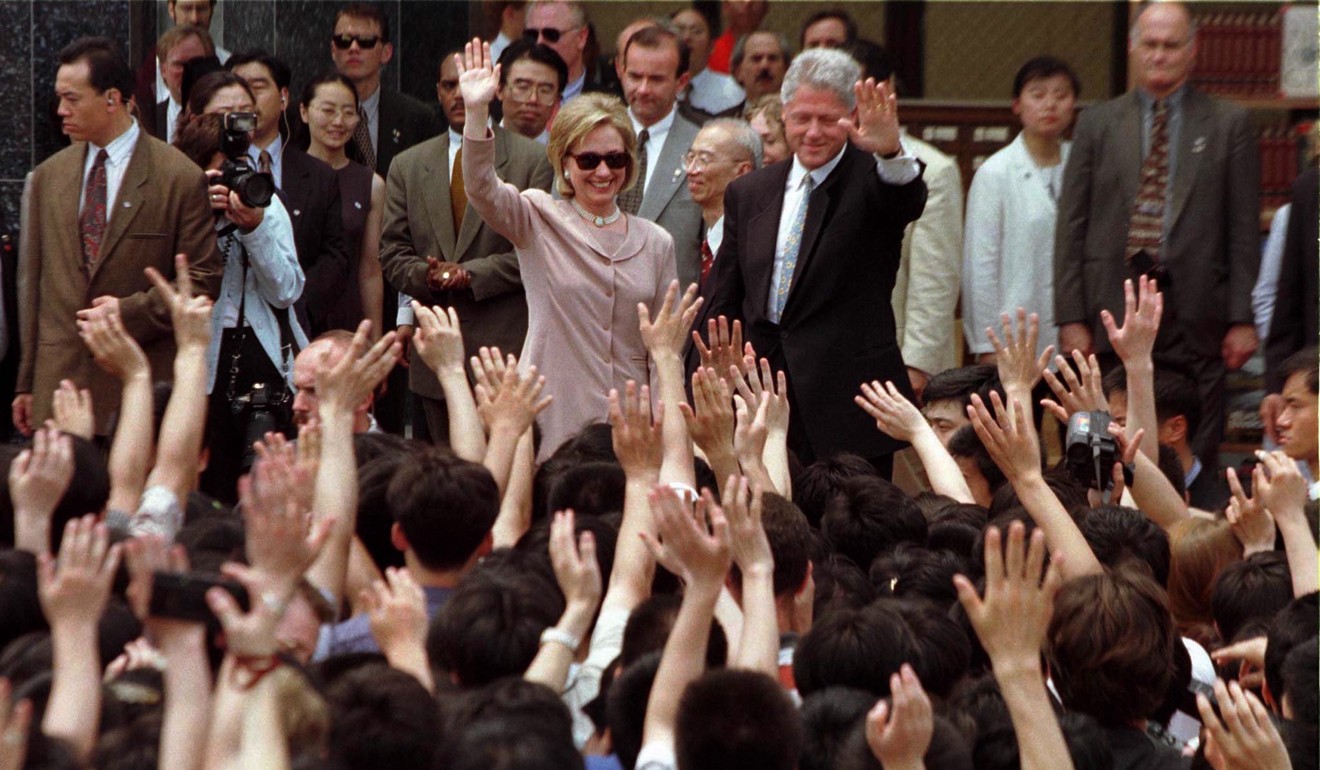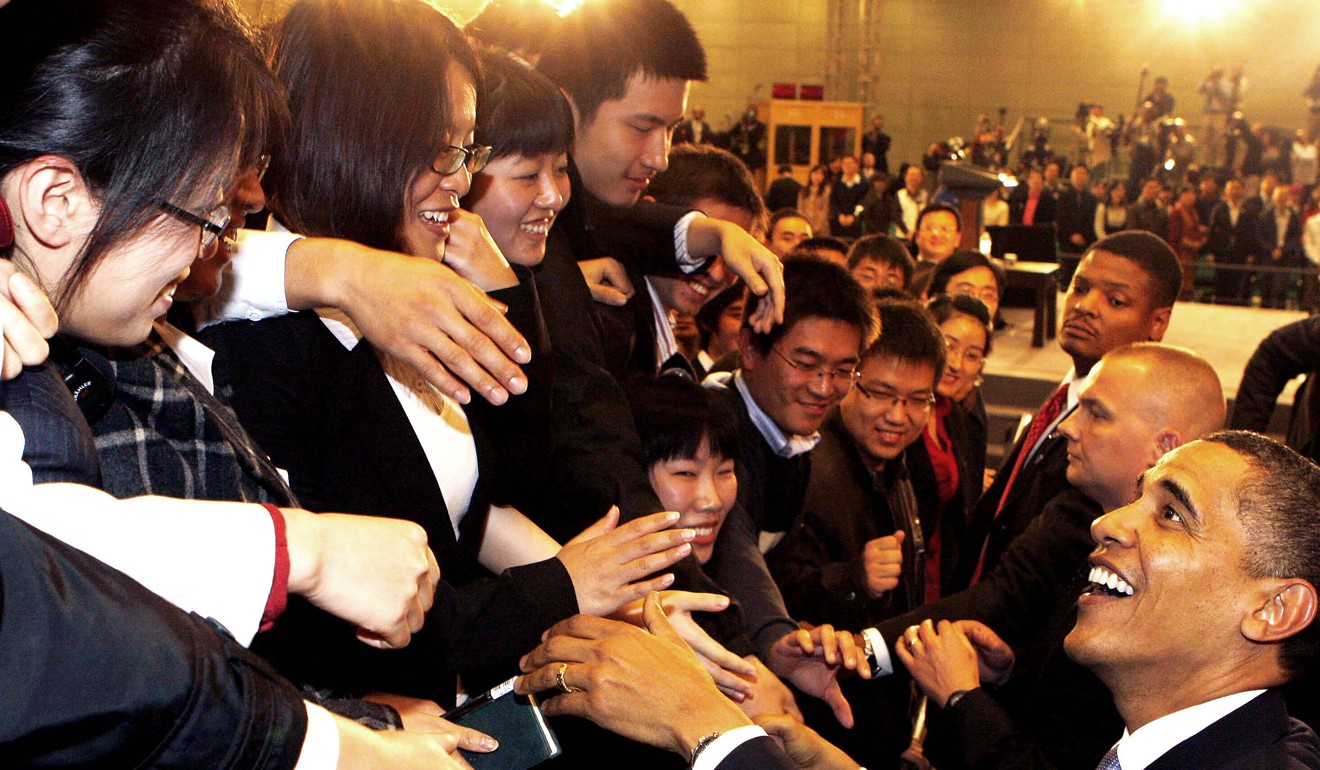
Human rights and playing the crowds off the agenda for Trump in China
Unlike his predecessors, the US president has not touched on sensitive rights issues and has not spoken to ordinary Chinese in public forums
US President Donald Trump has made no public mention of human rights during his trip to China and will not address universities or members of the public, in a sharp contrast to the visits made by his predecessors.
Instead, the three days of his maiden presidential trip to China have consisted exclusively of official and private events with his counterpart, President Xi Jinping. The two have sipped tea and watched opera performances in the Forbidden City, the imperial palace complex in Beijing, and have held private meetings in official quarters.
Analysts said the itinerary may have been set that way to ensure the visit went off without a hitch, and to reduce opportunities for Trump – known for his off-the-cuff remarks – to say anything that might embarrass the host country.
The US State Department did not respond to requests for comment.

Ja Ian Chong, associate professor of political science at the National University of Singapore, said that Trump’s administration may not have pushed for such meetings and Beijing would not have proactively arranged them.
“It’s not really Trump’s thing,” he said. “Even in the US, he does these mass rallies, but he doesn’t really have these close-up engagement events … His administration may feel that having a more controlled environment for the president’s engagements may be beneficial for both the US administration and the Sino-US relationship.”
There was no mention of human rights or the condition of Liu Xia, the widow of deceased Nobel Peace laureate and dissident Liu Xiaobo, at a joint press conference between the two leaders on Thursday, even though more than 50 authors, including Philip Roth and Margaret Atwood, had urged the US leader to seek the release of Liu Xia.
Journalists were prevented from asking questions during the press conference, a sign also of Xi’s tightened grip over the country and the erosion of media freedoms.
Trump’s predecessors had traditionally spoken at local universities during visits to China, but his own itinerary did not include such events, nor others that would allow him to engage with the Chinese public.

Bill Clinton had delivered a live speech at Peking University during his visit in June 1998, George W. Bush had addressed students at Tsinghua University in February 2002, and Barack Obama had held a town hall meeting with students in Shanghai in November 2009.
Although the events were stage-managed – students at Obama’s meeting were preselected and the event was not broadcast nationally – they have served as forums for the leaders to touch on key bilateral issues.

Zhang Zhexin, a research fellow at the Shanghai Institute for International Studies, said that in any case Trump was likely to prefer Twitter as his platform for public engagement.
“Being a tweeting president, he doesn’t need these public speeches,” he said. “He would rather go directly to the public.”

